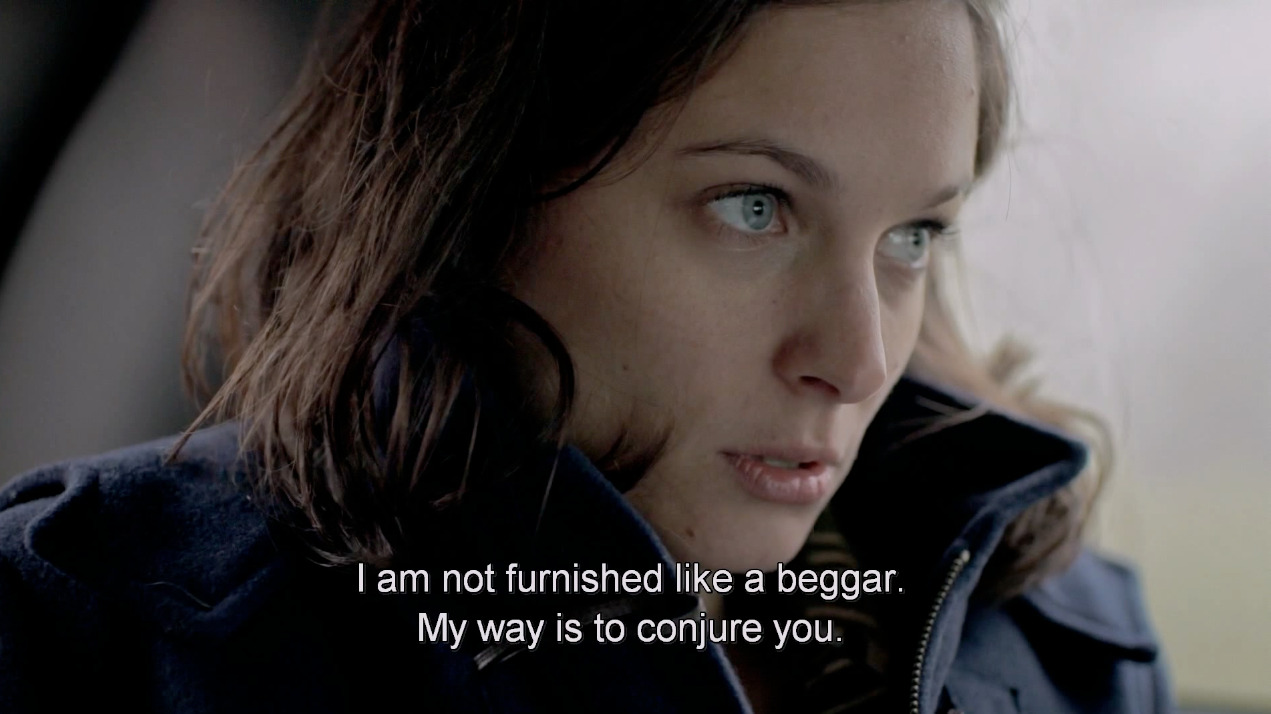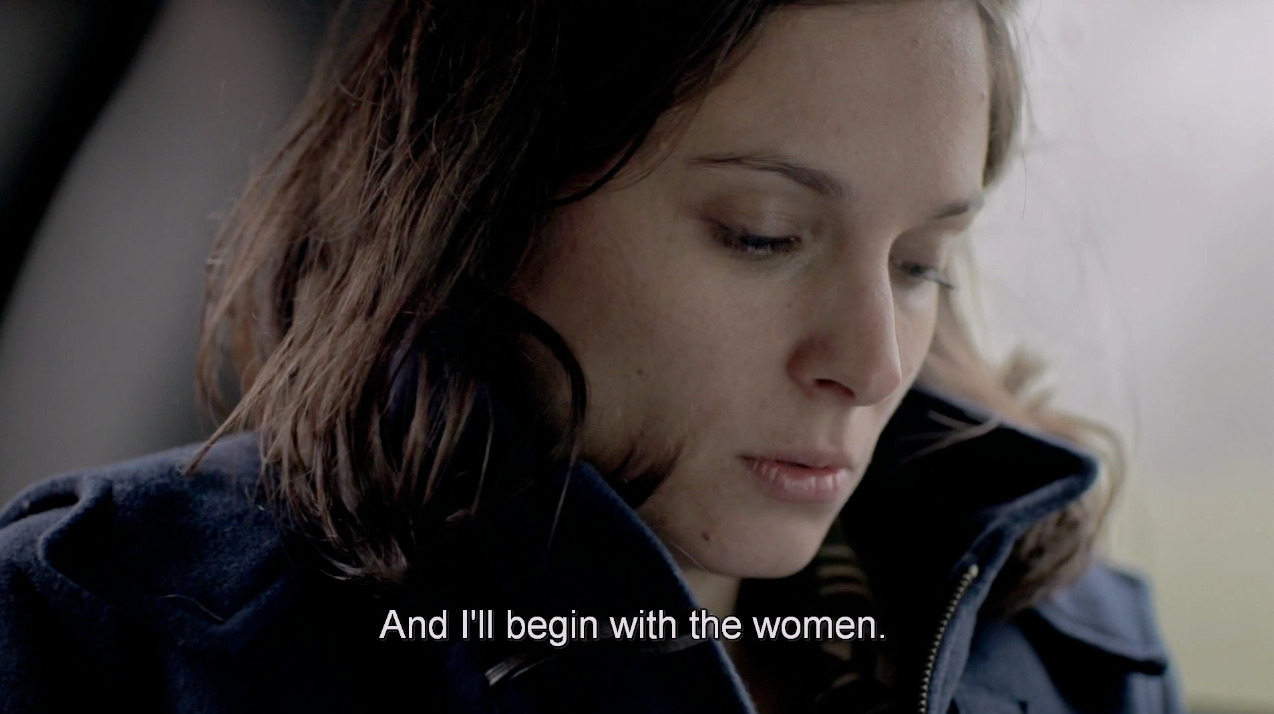Every time I watch Matias Piñeiro's Viola (2012), I understand more and less of it. It inspires a pleasant kind of vertigo. It's the kind of movie you immediately want to write a poem about,* or draw maps of, like Gilles Deleuze did with Jacques Rivette's Gang of Four (1988), to luxuriate in the tricky elegance of its construction. One could map individual scenes, the way the actors--mostly women, all of them fantastic--move through space, at once naturalistic and sinuously choreographed. I'm thinking especially of the long scene where Cecilia (Agustina Muñoz) seduces Sabrina (Elisa Carricajo) under the pretext of running lines for Act 1 Scene 5 of Twelfth Night. They run through the scene several times, and as they do, they move around the room, drawing close, turning away, lying down on the couch, getting up, encircling and cornering each other, Piñeiro's camera gliding in sync with them in a lengthy take. There might be a cut somewhere, but after three viewings I've yet to notice, much as it's hard to pinpoint where one thought fades into the next when daydreaming. After a certain point, the text loses its meaning, becomes pure speech, then regains its meaning and develops new dimensions. It's disorienting, hypnotic, playful, and erotic, and makes up about 10 of Viola's 62 minutes, 62 minutes that are dense with words, gestures, implications, enigmas, but never in an undue hurry, like a midafternoon stroll taken with the most interesting people you know. Comparisons can and have been made to Rivette, but Piñeiro puts his camera closer to his subjects, and the mysteries he generates are more localized, less sinister. It might be more useful to consider it in relation to contemporary American microbudget cinema, with its slender length, twentysomething neo-bohemian characters, and lack of capital-D Dramatic incident. I won't say Viola is "better" than what's been happening on the low-/no-budge circuit up here, as there's a lot I haven't seen and several I've seen that I like just as much, but I think we could all learn a great deal from it, as Piñeiro seems to have internalized Italo Calvino's Six Memos for the Next Millennium** more thoroughly than any other young filmmaker today.
*I gave it a shot:
Your way is to conjure me
And you'll begin with the women of Buenos Aires
Who weave through space and into being other worlds
With the Bard's words or their own,
Both equally likely to slip abruptly into couplets.
Traces to be found here of the Phantom Ladies and the Gang of Four,
But the schemes of Piñeiro's ladies are more earthbound,
Less loaded with ominous metaphysical implication
(they care more about Love, less about Conspiracy).
Small movies in a big world aren't small at all
Provided they know what boundaries to stand astride
(fiction/nonfiction, dream/reality)
And which interstices between adjacent worlds get the most light.
**Lightness, quickness, exactitude, visibility, multiplicity,




